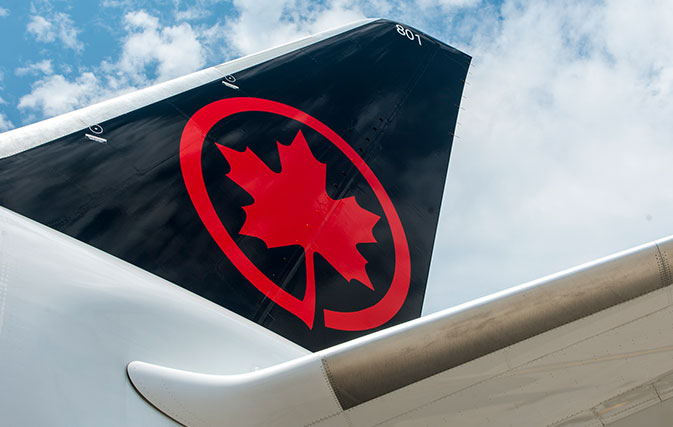MONTREAL — The vast majority of Air Canada’s 27,000 cabin crew, customer service agents and others have received both shots, chief executive Michael Rousseau said Tuesday.
“Our employees have done their part, with now over 96 per cent fully vaccinated. The employees who are not vaccinated or do not have a medical or other permitted exemption have been put on unpaid leave,” he said on a conference call with investors.
The layoffs are “across the company” rather than concentrated in any particular job, spokesman Peter Fitzpatrick said in an email.
The proportions align with those at WestJet, where fewer than 4% of workers — less than 300 out of 7,300 — are unvaccinated, the company said in an email.
Prime Minister Justin Trudeau announced last month that as of Oct. 30, Ottawa would require federally regulated air, rail and shipping companies to establish mandatory vaccination policies for employees.
Air Canada sees hope on the horizon as revenues soared over 2020 levels last quarter amid stronger sales for winter, despite continuing to operate far below pre-pandemic capacity and at a loss of hundreds of millions of dollars.
Domestic leisure bookings have bounced back, prompting a recall of more than 10,000 laid-off employees since the start of the year — 6,500 of them since July. But business travel remains down across the board due in part to the persistence of remote work, executives said Tuesday.
“We’re witnessing a strong rebound in VFR (visiting friends and relatives), and leisure traffic remains strong, specifically within North America, across the Atlantic and to sun destinations,” chief commercial officer Lucie Guillemette said on the conference call.
“We were pretty confident that come 2022 corporate Canada returns to their offices and business travel should return. But no doubt that for us, business has lagged a little bit.”
Revenue nearly tripled year over year to $2.10 billion in the quarter ended Sept. 30, beating expectations by more than 15%, according to according to financial markets data firm Refinitiv. Capacity also increased by 87%.
But revenue fell more than 60% short of Air Canada’s third-quarter figures in 2019 while capacity remained two-thirds below, as COVID-19 fallout continues to dent carriers’ bottom lines.
“There’s no textbook on this type of recovery, or any in the history. There’s no doubt we’re very encouraged by what we see. And there’s no doubt that the length of the recovery has moved in from the consensus of 2025 to at least 2024 and maybe 2023,” said Rousseau, who took over as CEO in February.
In its outlook, the Montreal-based airline said it plans to expand its fourth-quarter capacity by about 135% compared with the same period in 2020.
Net cash flow of $153 million was well above analyst expectations of cash burn of up to $460 million. It marked the first quarter Air Canada has enjoyed cash flow in the black since the onset of the pandemic.
Rousseau also stressed a record cargo performance of more than $1 billion so far this year. The carrier began to shift toward air freight last spring, converting several of its retired Boeing 767 jetliners to cargo aircraft.
With fewer flights and less freight being transported in the luggage compartments of passenger planes, the price of shipping cargo by air has increased. Other airlines such as American Airlines and United Airlines also began operating cargo-only last year, hoping to use the opportunity to stem their losses.
Robert Kokonis, president of Toronto-based consulting firm AirTrav Inc., called Air Canada’s results “a tremendous source of optimism.”
However, rising fuel prices and the pace of business travel’s revival remain areas of anxiety.
“Many employees have not returned to the office, companies are continuing to make use of virtual conferencing tools, and air travel for inter-office business and international trips continues to be restricted. At least in the short-term, these factors will suppress demand for corporate travel, which is traditionally the highest contributor to airline top lines,” said Kokonis.
ROUSSEAU APOLOGIZES
Meanwhile Rousseau is apologizing for comments he made about not needing to learn French to get by in Montreal.
He says he is committed to improving his French and didn’t mean any disrespect toward Quebecers.
His statement today comes after Quebec Premier Francois Legault demanded he apologize for saying he had not learned how to speak French despite living in Quebec for 14 years.
Legault told reporters today at the COP26 climate talks in Scotland that the airline’s board of directors should consider whether Rousseau should be at the head of Air Canada.
Following a speech Wednesday almost entirely in English to the Chamber of Commerce of Metropolitan Montreal, Rousseau told reporters he didn’t have time to learn French and was focused on moving Air Canada forward after the COVID-19 pandemic.
After heated criticism in local media, Rousseau offered a mea culpa.
“I want to make it clear that in no way did I mean to show disrespect for Quebecers and Francophones across the country,” Rousseau’s statement read. “I apologize to those who were offended by my remarks.”

